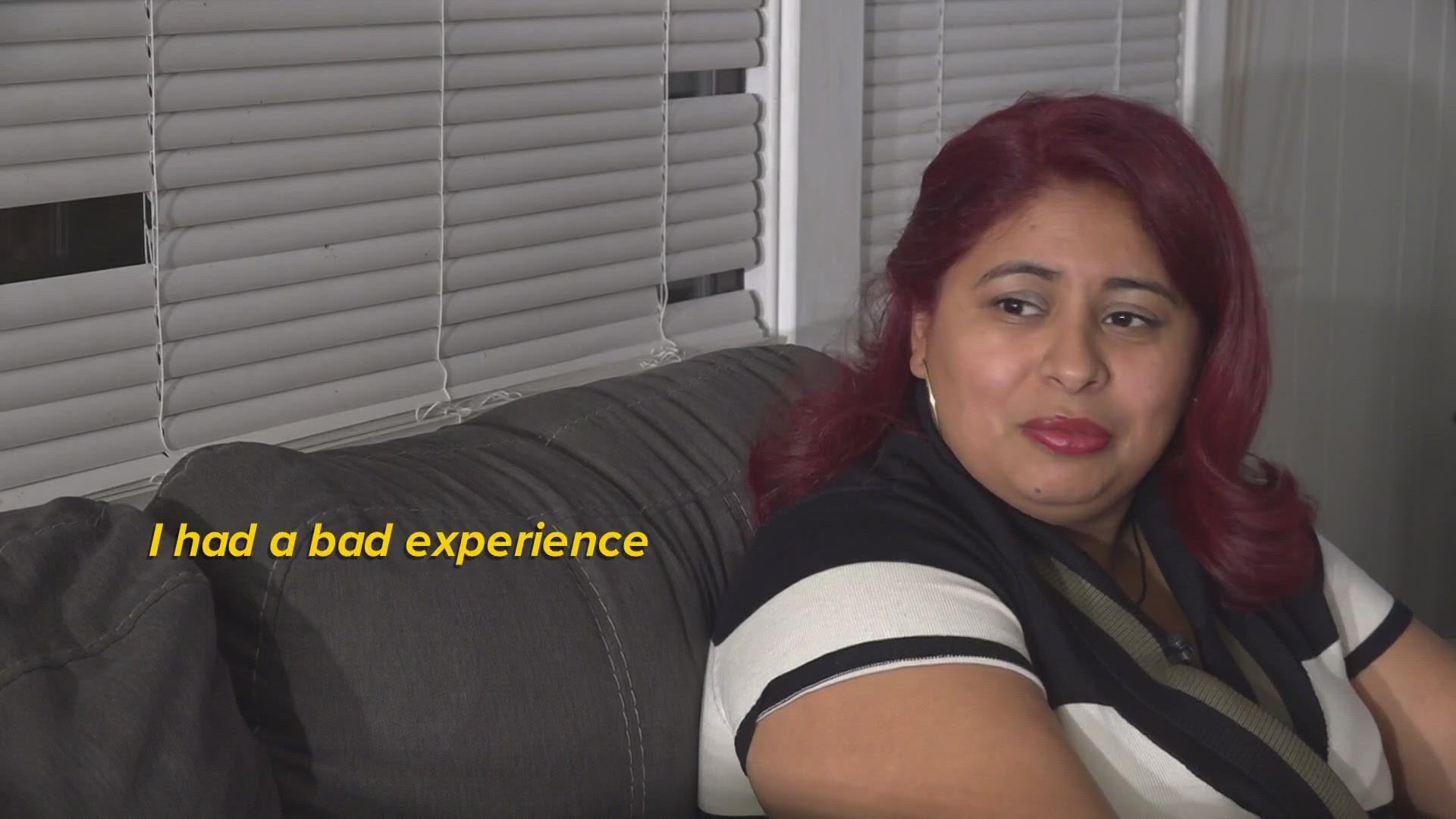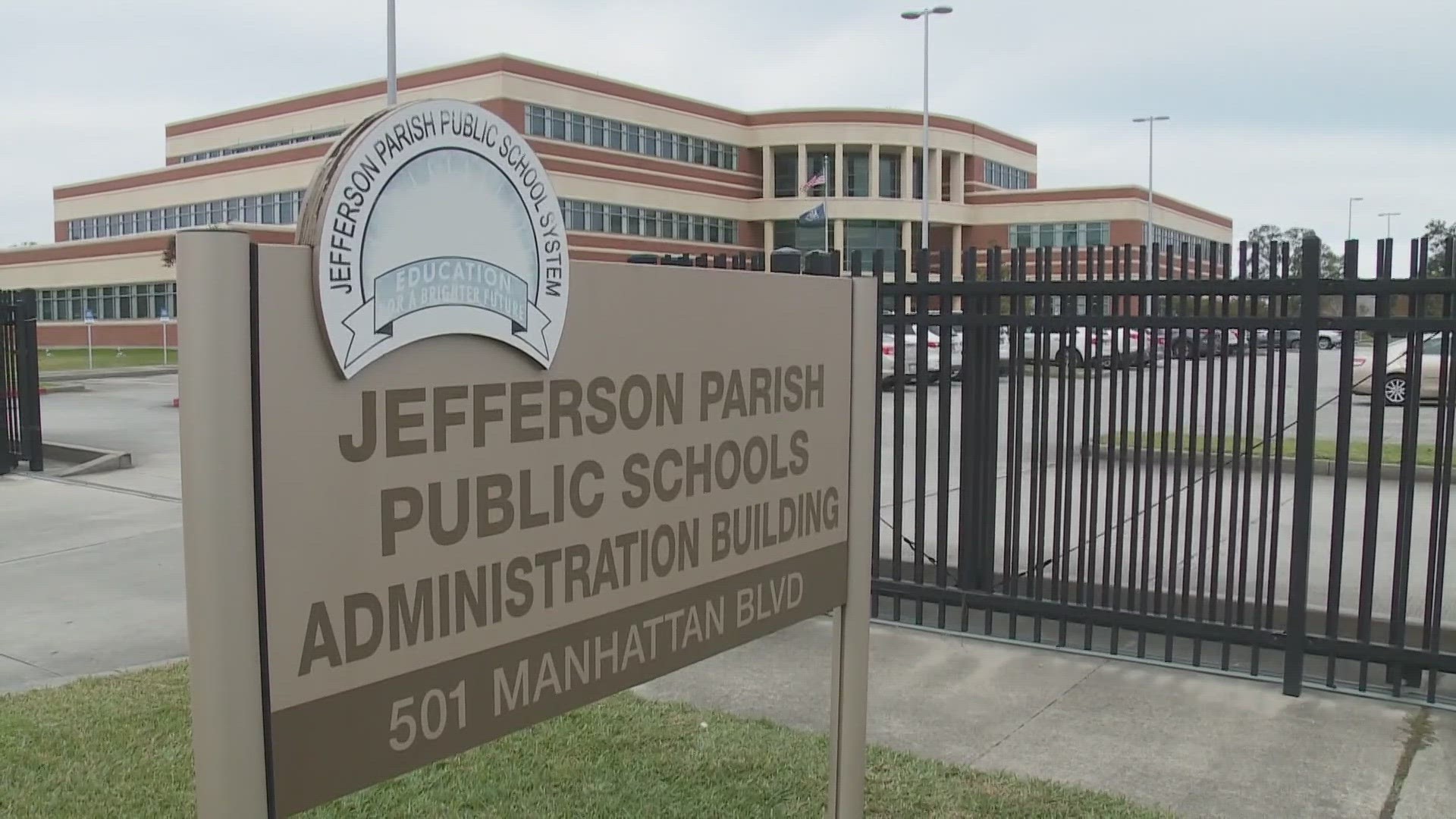JEFFERSON PARISH, La. — Haga clic aquí para leer este artículo en español
From mundane announcements to emergencies involving their children, schools often have to contact families.
When parents do not speak English, things can get complicated. In Jefferson Parish, which has the most Spanish speakers in Louisiana by far, the school district has taken steps to make communication between schools and students’ families easier. But some still feel that they are left behind.
Karla Bonilla’s family has lived in Metairie for years. Her son had been going to school in Luling and she and her husband decided to transfer him to T.H. Harris Middle School. As a non-fluent English speaker, she says the process was “very complicated” for her.
Bonilla described how every snag in the registration process was made much more difficult due to a lack of Spanish speakers at her son’s school. She said it took weeks to get the bus to pick her son up, which affected her work schedule. “Sometimes when he leaves school we aren’t back yet. He has to go on the bus,” she said.
She also claims she did not get a copy of the school rules, while other parents did. That meant she did not know what her son could wear, and many of his sweatshirts were confiscated for not following the dress code.
Bonilla’s is one of a growing number of Hispanic and Latino families in Jefferson Parish. In 2000, census data shows about 7% of residents identified as Hispanic or Latino. Then, like New Orleans, the parish saw an influx of immigrants from Latin American countries in the years after Hurricane Katrina. In 2010, 12% of residents were Hispanic or Latino. By 2020, almost 18% were, even with a lower overall population than 20 years prior.
The demographic shift is obvious in the many shops, churches, and restaurants advertising services in Spanish in Jefferson Parish. But many public systems have been slower to adjust.
After weeks of back-and-forth with the school, administrators called Bonilla, saying that her son had been missing class. She was confused, as she had called ahead every time he was going to be absent. That is when she found out her son was not properly enrolled at T.H. Harris. His birthday was wrong in the system, and he “had been given another last name, not his last name.”
Angela Ramirez, Executive Director of local advocacy group Puentes, says she often sees Spanish-speaking families struggle to sign their children up for school. Without “face-to-face help”, figuring out every step of the registration process “can be really really overwhelming and confusing for parents.” Sometimes, it is as simple as having their birthdays submitted or recorded incorrectly. She pointed out that in Spanish, dates are written with the day first, then the month, and “many times this leads to kids not being registered.”
It is difficult to determine exactly how many students in the Jefferson Parish Public School System have parents who do not speak fluent English. According to state data, about one in five students in the district have “limited English proficiency” themselves, and the 2020 census shows about one in five households in the parish “speak a language other than English at home.”
Bonilla ran into other Spanish-speaking parents during her many trips to the office. When she told another mother about the problems she was having, she responded, “It’s normal.”
Speaking anonymously, a teacher at a Jefferson Parish elementary school told WWL-TV her school only recently started sending notes home in both English and Spanish. Homework is still primarily in English. “How is it that you expect these children to acclimate if the people in their household can’t help them?” she asked.
In Jefferson Parish, the most recent graduation rate for Hispanic students is just under 70%. That is far lower than the rate for either white (85%) or Black (80%) students. Statewide, the gap is similar, and it has not changed much over time.
The teacher says only one staff member at her school speaks Spanish. “Whatever she’s doing during the day, she has to come out of that, and go to the office for everything else they might have where an interpreter is needed,” she explained.
If that person is not available, teachers improvise. The teacher said one time a bus broke down before the end of the school day. To let one parent know, she “had to call a kid from the hallway and ask him to translate over the phone.”
Parents can seek help through the district's Office of Multilingual Learning. The district also pointed out that Language Line, a third-party translation service, is available in every school office. Staff can call the service on speaker phone and get real-time interpretation in many languages. Ramirez, who often acts as an interpreter in other situations, says services like Language Line can be useful but are not perfect. She notes that parents can be “skeptical” of them, and others may not know they are an option in the first place.
Some families feel that the language barrier shuts them out of bigger decisions as well. In early April, the Jefferson Parish School Board voted to close some schools and move their students to other campuses. At the final public meeting, multiple people called attention to the lack of a Spanish interpreter.
One person asked why they were only speaking in English, saying she was there to translate for a family member. Another student told the Board in Spanish “we have the same rights that they have” then asked in English, “if you can’t understand what I am saying how can I expect for you to represent me?”
A Jefferson Parish Schools spokesperson said family members can request interpreters for meetings. The form is on the Jefferson Parish School District website, under “Departments,” “Teaching & Learning,” then “Translation Services.” She says no one submitted a request for the School Board meeting in April.
She added that the district is always looking for more bilingual employees, and the biggest challenge is finding bilingual candidates for specialized roles, like counseling. Ramirez acknowledged “how difficult it is to recruit bilingual educators.”
Spanish-speaking families can also turn to several organizations in the Metro area for help advocating for their children, including Puentes and Our Voice/Nuestra Voz.
► Get breaking news from your neighborhood delivered directly to you by downloading the new FREE WWL-TV News app now in the IOS App Store or Google Play.


